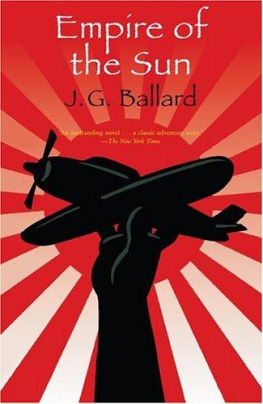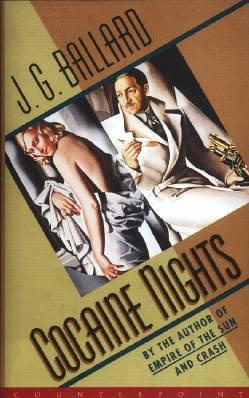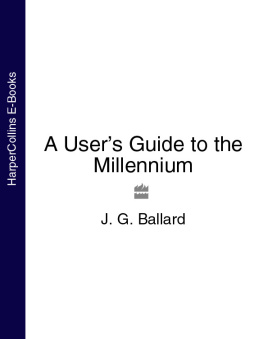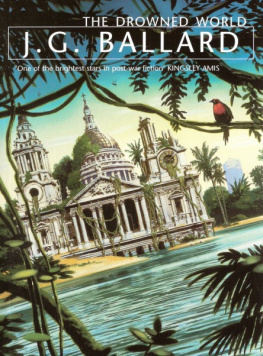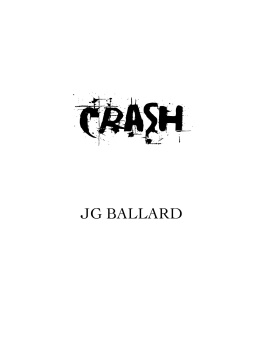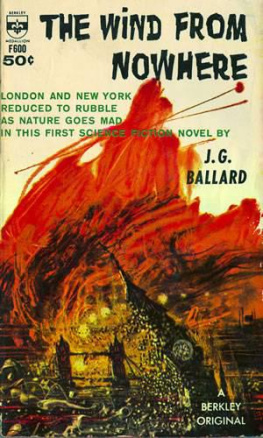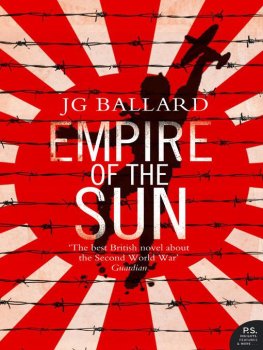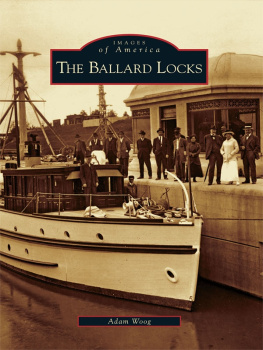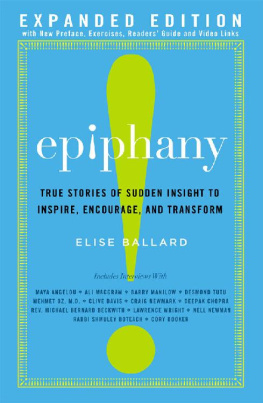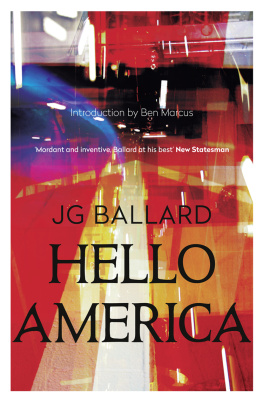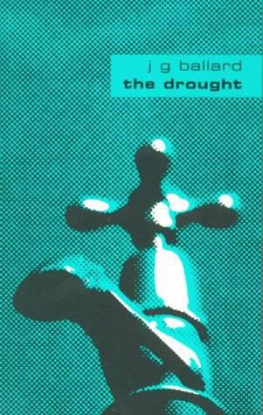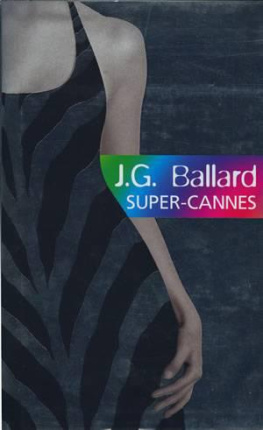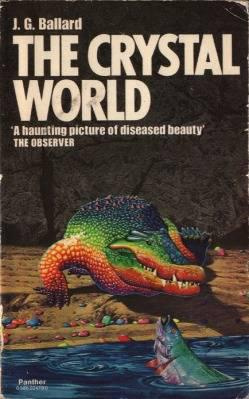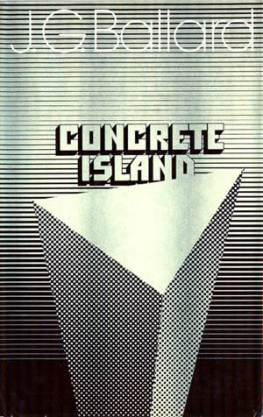J. G. Ballard - Empire of the Sun
Here you can read online J. G. Ballard - Empire of the Sun full text of the book (entire story) in english for free. Download pdf and epub, get meaning, cover and reviews about this ebook. year: 2006, publisher: Harper Perennial, genre: Detective and thriller. Description of the work, (preface) as well as reviews are available. Best literature library LitArk.com created for fans of good reading and offers a wide selection of genres:
Romance novel
Science fiction
Adventure
Detective
Science
History
Home and family
Prose
Art
Politics
Computer
Non-fiction
Religion
Business
Children
Humor
Choose a favorite category and find really read worthwhile books. Enjoy immersion in the world of imagination, feel the emotions of the characters or learn something new for yourself, make an fascinating discovery.
- Book:Empire of the Sun
- Author:
- Publisher:Harper Perennial
- Genre:
- Year:2006
- Rating:5 / 5
- Favourites:Add to favourites
- Your mark:
- 100
- 1
- 2
- 3
- 4
- 5
Empire of the Sun: summary, description and annotation
We offer to read an annotation, description, summary or preface (depends on what the author of the book "Empire of the Sun" wrote himself). If you haven't found the necessary information about the book — write in the comments, we will try to find it.
Empire of the Sun — read online for free the complete book (whole text) full work
Below is the text of the book, divided by pages. System saving the place of the last page read, allows you to conveniently read the book "Empire of the Sun" online for free, without having to search again every time where you left off. Put a bookmark, and you can go to the page where you finished reading at any time.
Font size:
Interval:
Bookmark:
The Perennial Collection
Empire of the Sun
J. G. Ballard

London, New York, Toronto and Sydney
Empire of the Sun draws on my experiences in Shanghai, China, during the Second World War, and in Lunghua C.A.C. (Civilian Assembly Centre) where I was interned from 1942-45. For the most part this novel is based on events I observed during the Japanese occupation of Shanghai and within the camp at Lunghua.
The Japanese attack on Pearl Harbor took place on Sunday morning, 7 December 1941, but as a result of time differences across the Pacific Date Line it was then already the morning of Monday, 8 December in Shanghai.
J. G. Ballard
Table of Contents
Wars came early to Shanghai, overtaking each other like the tides that raced up the Yangtze and returned to this gaudy city all the coffins cast adrift from the funeral piers of the Chinese Bund.
Jim had begun to dream of wars. At night the same silent films seemed to flicker against the wall of his bedroom in Amherst Avenue, and transformed his sleeping mind into a deserted newsreel theatre. During the winter of 1941 everyone in Shanghai was showing war films. Fragments of his dreams followed Jim around the city; in the foyers of department stores and hotels the images of Dunkirk and Tobruk, Barbarossa and the Rape of Nanking sprang loose from his crowded head.
To Jims dismay, even the Dean of Shanghai Cathedral had equipped himself with an antique projector. After morning service on Sunday, 7 December, the eve of the Japanese attack on Pearl Harbor, the choirboys were stopped before they could leave for home and were marched down to the crypt. Still wearing their cassocks, they sat in a row of deck-chairs requisitioned from the Shanghai Yacht Club and watched a year-old March of Time.
Thinking of his unsettled dreams, and puzzled by their missing sound-track, Jim tugged at his ruffed collar. The organ voluntary drummed like a headache through the cement roof and the screen trembled with the familiar images of tank battles and aerial dogfights. Jim was eager to prepare for the fancy-dress Christmas party being held that afternoon by Dr Lockwood, the vice-chairman of the British Residents Association. There would be the drive through the Japanese lines to Hungjao, and then Chinese conjurors, fireworks and yet more newsreels, but Jim had his own reasons for wanting to go to Dr Lockwoods party.
Outside the vestry doors the Chinese chauffeurs waited by their Packards and Buicks, arguing in a fretful way with each other. Bored by the film, which he had seen a dozen times, Jim listened as Yang, his fathers driver, badgered the Australian verger. However, watching the newsreels had become every expatriate Britons patriotic duty, like the fund-raising raffles at the country club. The dances and garden parties, the countless bottles of Scotch consumed in aid of the war effort (like all children, Jim was intrigued by alcohol but vaguely disapproved of it) had soon produced enough money to buy a Spitfire probably one of those, Jim speculated, that had been shot down on its first flight, the pilot fainting in the reek of Johnnie Walker.
Usually Jim devoured the newsreels, part of the propaganda effort mounted by the British Embassy to counter the German and Italian war films being screened in the public theatres and Axis clubs of Shanghai. Sometimes the Path newsreels from England gave him the impression that, despite their unbroken series of defeats, the British people were thoroughly enjoying the war. The March of Time films were more sombre, in a way that appealed to Jim. Suffocating in his tight cassock, he watched a burning Hurricane fall from a sky of Dornier bombers towards a childrens book landscape of English meadows that he had never known. The Graf Spee lay scuttled in the River Plate, a river as melancholy as the Yangtze, and smoke clouds rose from a shabby city in eastern Europe, that black planet from which Vera Frankel, his seventeen-year-old governess, had escaped on a refugee ship six months earlier.
Jim was glad when the newsreel was over. He and his fellow-choristers tottered into the strange daylight towards their chauffeurs. His closest friend, Patrick Maxted, had sailed with his mother from Shanghai for the safety of the British fortress at Singapore, and Jim felt that he had to watch the films for Patrick, and even for the White Russian women selling their jewellery on the cathedral steps and the Chinese beggars resting among the gravestones.
The commentators voice still boomed inside his head as he rode home through the crowded Shanghai streets in his parents Packard. Yang, the fast-talking chauffeur, had once worked as an extra in a locally made film starring Chiang Ching, the actress who had abandoned her career to join the communist leader Mao Tse-Tung. Yang enjoyed impressing his eleven-year-old passenger with tall tales of film stunts and trick effects. But today Yang ignored Jim, banishing him to the back seat. He punched the Packards powerful horn, carrying on his duel with the aggressive rickshaw coolies who tried to crowd the foreign cars off the Bubbling Well Road. Lowering the window, Yang lashed with his leather riding crop at the thoughtless pedestrians, the sauntering bar-girls with American handbags, the old amahs bent double under bamboo yokes strung with headless chickens.
An open truck packed with professional executioners swerved in front of them, on its way to the public stranglings in the Old City. Seizing his chance, a barefoot beggar-boy ran beside the Packard. He drummed his fists on the doors and held out his palm to Jim, shouting the street cry of all Shanghai:
No mama! No papa! No whisky soda!
Yang lashed at him, and the boy fell to the ground, picked himself up between the front wheels of an oncoming Chrysler and ran beside it.
No mama, no papa
Jim hated the riding crop, but he was glad of the Packards horn. At least it drowned the roar of the eight-gun fighters, the wail of air-raid sirens in London and Warsaw. He had had more than enough of the European war. Jim stared at the garish faade of the Sincere Companys department store, which was dominated by an immense portrait of Chiang Kai-Shek exhorting the Chinese people to ever greater sacrifices in their struggle against the Japanese. A faint light, reflected from a faulty neon tube, trembled over the Generalissimos soft mouth, the same flicker that Jim had seen in his dreams. The whole of Shanghai was turning into a newsreel leaking from inside his head.
Had his brain been damaged by too many war films? Jim had tried to tell his mother about his dreams, but like all the adults in Shanghai that winter she was too preoccupied to listen to him. Perhaps she had bad dreams of her own. In an eerie way, these shuffled images of tanks and dive-bombers were completely silent, as if his sleeping mind was trying to separate the real war from the make-believe conflicts invented by Path and British Movietone.
Jim had no doubt which was real. The real war was everything he had seen for himself since the Japanese invasion of China in 1937, the old battlegrounds at Hungjao and Lunghua where the bones of the unburied dead rose to the surface of the paddy fields each spring. Real war was the thousands of Chinese refugees dying of cholera in the sealed stockades at Pootung, and the bloody heads of communist soldiers mounted on pikes along the Bund. In a real war no one knew which side he was on, and there were no flags or commentators or winners. In a real war there were no enemies.
By contrast, the coming conflict between Britain and Japan, which everyone in Shanghai expected to break out in the summer of 1942, belonged to a realm of rumour. The supply ship attached to the German raider in the China Sea now openly visited Shanghai and moored in the river, where it took on fuel from a dozen lighters many of them, Jims father noted wryly, owned by American oil companies. Almost all the American women and children had been evacuated from Shanghai. In his class at the Cathedral School, Jim was surrounded by empty desks. Most of his friends and their mothers had left for the safety of Hong Kong and Singapore, while the fathers closed their houses and moved into the hotels along the Bund.
Next pageFont size:
Interval:
Bookmark:
Similar books «Empire of the Sun»
Look at similar books to Empire of the Sun. We have selected literature similar in name and meaning in the hope of providing readers with more options to find new, interesting, not yet read works.
Discussion, reviews of the book Empire of the Sun and just readers' own opinions. Leave your comments, write what you think about the work, its meaning or the main characters. Specify what exactly you liked and what you didn't like, and why you think so.

